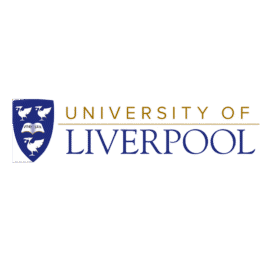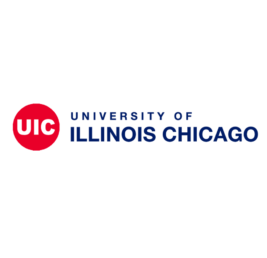
PhD -Chemical Biology
PhD @University of Liverpool posted 4 weeks ago in Biological Sciences , in Chemistry , in Computational Biology Shortlist Email JobJob Detail
-
Experience No Preference
-
Qualifications Master’s
Job Description
Overview
Our research in chemical biology bridges the gap between chemistry and biology to explore the molecular interactions that drive cellular processes, often focused on proteins. Living systems obey the laws of organic, inorganic and physical chemistry. By applying chemical tools and technology to study biological systems, we aim to uncover new insights into cellular mechanisms relevant to health and disease, drug discovery, and the development of innovative therapies to study and improve human health.
Introduction
The Institute of Systems, Molecular and Integrative Biology (ISMIB) was established to integrate cutting-edge and clinical research across the Faculty of Health and Life Sciences. Programmes of work across ISMIB are varied and are led by world experts in their fields.
Our chemical biology research is focused in the Department of Biochemistry, Cell and Systems Biology , which has excelled in teaching and research since 1902, when the world’s first Chair of Biochemistry was established in Liverpool. Our integration of biochemical research with systems-based studies, including multiomics, data analysis, structural biology, synthetic biology, and AI, makes us a global leader. This is further supported by top-tier shared research facilities and our commitment to sharing discoveries.
We offer intensive PhD programmes with exposure to diverse technologies in chemical biology with close links to the Department of Pharmacology and Therapeutics and the Department of Chemistry. Research is multidisciplinary, with strong collaborations across the Institute and wider University, spanning physical, chemical, and clinical sciences. Our PhD programmes are supported by world-class facilities, including the Centre for Genomic Research, Centre for Proteome Research, Centre for Metabolomics Research and Computational Biology Facility.
Research topics
Topics relevant to chemical biology include:
- Bioinformatics
- Biochemistry
- Enzymology
- Plant biochemistry
- Biotechnology
- Structural biology
- Computational biology
- Multiomics
- Systems biology
- Nutritional biochemistry.
How to apply
-
1. Identify potential supervisors
It’s useful to contact potential supervisors before you begin your application. Explore our staff lists for the Institute of Systems, Molecular and Integrative Biology for details of potential supervisors.
-
2. Prepare your application documents
You may need the following documents to complete your online application:
- A research proposal (this should cover the research you’d like to undertake)
- University transcripts and degree certificates to date
- Passport details (international applicants only)
- English language certificates (international applicants only)
- A personal statement
- A curriculum vitae (CV)
- Contact details for two proposed supervisors
- Names and contact details of two referees.
-
3. Apply
Finally, register and apply online. You’ll receive an email acknowledgment once you’ve submitted your application. We’ll be in touch with further details about what happens next.
Fees and funding
Your tuition fees, funding your studies, and other costs to consider.
Tuition fees
UK fees (applies to Channel Islands, Isle of Man and Republic of Ireland)
Full-time place, per year – £5,006
Part-time place, per year – £2,503
International fees
Full-time place, per year – £31,250
Part-time place, per year – £15,650
Fees stated are for the 2025-26 academic year.
Additional costs
We understand that budgeting for your time at university is important, and we want to make sure you understand any costs that are not covered by your tuition fee. This could include buying a laptop, books, or stationery.
Find out more about the additional study costs that may apply to this degree, as well as general student living costs.
Funding your PhD
If you’re a UK national, or have settled status in the UK, you may be eligible to apply for a Postgraduate Doctoral Loan worth up to £30,301 to help with course fees and living costs.
There’s also a variety of alternative sources of funding. These include funded research opportunities and financial support from UK research councils, charities and trusts. Your supervisor may be able to help you secure funding.
Scholarships and bursaries
We offer a range of scholarships and bursaries that could help pay your tuition fees and living expenses.
Duncan Norman Research Scholarship
If you’re awarded this prestigious scholarship, you’ll receive significant funding to support your postgraduate research. This includes full payment of your PhD fees and a cash bursary of £17,000 per year while you study. One award is available in each academic year.
Sport Liverpool Performance Programme
Apply to receive tailored training support to enhance your sporting performance. Our athlete support package includes a range of benefits, from bespoke strength and conditioning training to physiotherapy sessions and one-to-one nutritional advice.

